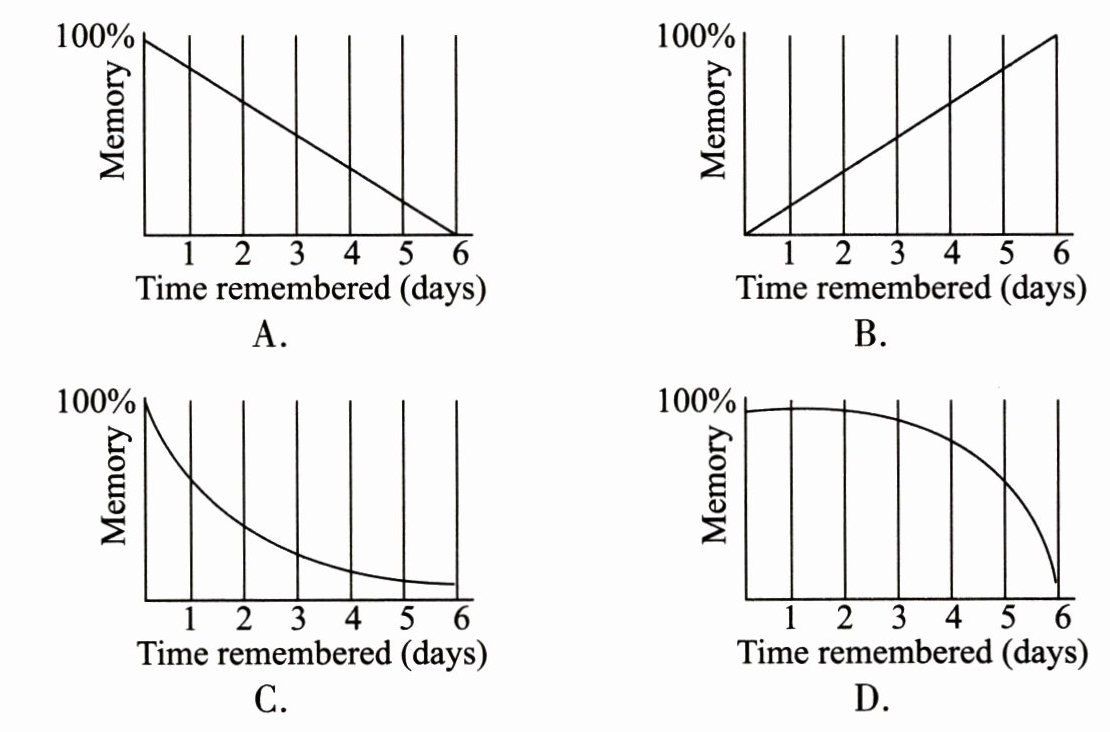B
Memory is the ability to remember things. A good memory can help us do better in school, such as language learning. A few people are born with amazing memories, but most people need to improve their memories by practising. Here are some secrets about memories.
We can still remember things that happened in our childhood, but not those last week. In fact, if the things have strong connections with our feelings in our mind, we can remember them longer. When things happen for the first time, children often have strong feelings. Also, parents tell us the interesting or funny stories from our childhood again and again. As a result, we remember them much better.
It's natural for common people to forget the new words which they learnt yesterday. Hermann Ebbinghaus wrote a book called Memory and showed a famous forgetting curve. According to him, the quickest loss of memory happens during the first two days after learning. That means going over what we've learnt during this time can help us remember the information.
A 15-year-old sometimes forgets things, but that doesn't mean his or her memory is getting worse. Our memory gets the top at the age of 25. At that point, we can remember over 12,000 pieces of information in a minute. But after this age, the brain starts to get smaller. By middle age, our memory is much worse than when we were young.
(
B
)4. Why is it easier to remember things in our childhood?
a. They were special. b. We got strong feelings from them.
c. They were helpful. d. We heard them many times.
A. ad B. bd C. ac D. bc
(
C
)5. Which is the CORRECT picture for Hermann Ebbinghaus's forgetting curve?

(
A
)6. What can we learn from the last paragraph?
A. A person has his or her best memory at the age of 25.
B. A fifteen-year-old's memory is worse than a middle-aged man's.
C. A person's memory gets worse only because the brain gets smaller.
D. A child usually remembers over 12,000 pieces of information in a minute.
(
A
)7. How is the passage organized?
A. ①/②③/④ B. ①/②/③④ C. ①②③/④ D. ①/②③④